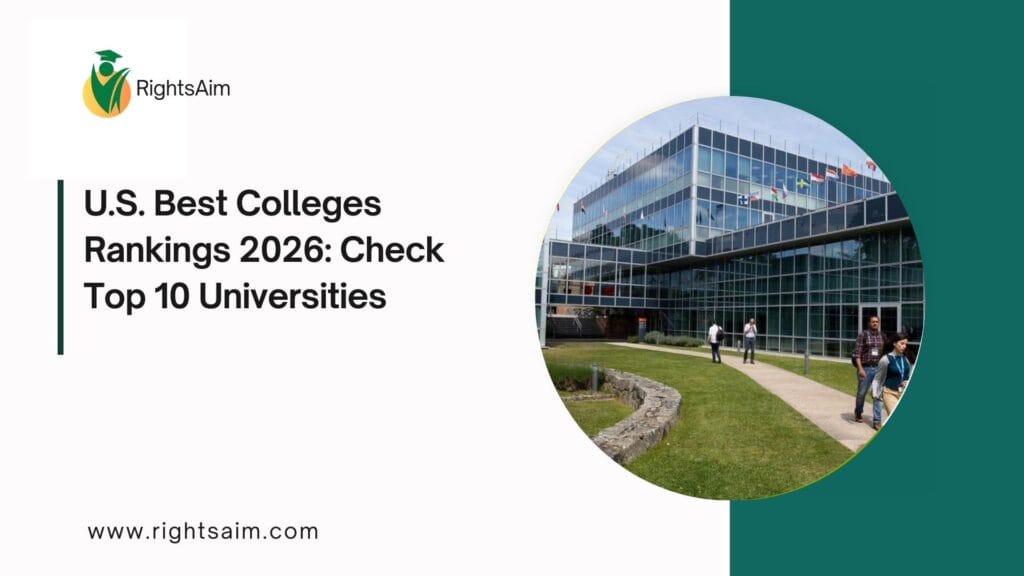
What Are These Rankings?
QS World University Rankings 2026 evaluates around 1,500+ universities worldwide. Key metrics include academic reputation, employer reputation, citations per faculty, international faculty / students, etc.
U.S. News & World Report ranks U.S. colleges based on factors such as graduation and retention rates, faculty resources, social mobility, financial resources, etc. Its “National Universities” list is heavily used by students applying in the U.S.
📊 Top 10 U.S. Universities (QS Rankings 2026)
Here are the U.S. universities in the top 10 globally according to QS 2026 (plus a few globally, to give context):
| Rank Global | University | Location |
|---|---|---|
| 1 | Massachusetts Institute of Technology (MIT) | Cambridge, Massachusetts |
| 3 | Stanford University | California |
| 5 | Harvard University | Massachusetts |
| 10 | California Institute of Technology (Caltech) | California |
| — | (Other global top 10 include non-U.S. ones, but focusing on U.S.) |
Other U.S. institutions in global top rankings include University of Chicago, University of Pennsylvania, Cornell University.
From U.S. News & World Report “Best Colleges 2026”: Top National Universities are:
Princeton University
Massachusetts Institute of Technology (MIT)
Harvard University
These are often followed by other Ivy League and elite institutions.
⚙️ What Makes These Universities Stand Out
A few common features among the top U.S. universities:
Strong Research Output: Frequent publication, high citation rates, strong funded research.
Global / Employer Reputation: High ratings in surveys of academics/employers globally.
Quality Faculty and Resources: Good student-faculty ratio, labs, facilities, support systems.
High Graduation & Retention Rates: Students stick, complete their degrees, advance.
Internationalization: Diverse student bodies, faculty, global partnerships.
For example, MIT scores perfect or nearly perfect in many QS metrics — academic reputation, employer reputation, citations per faculty. The Times of India+1
⚠️ Limitations to Be Aware Of
While rankings are useful, they have limitations:
They may emphasize research over teaching experience or student life.
Cost of attendance / financial aid isn’t always fully captured.
Sometimes, metrics favor older, well-endowed institutions.
Rankings differ by methodology: QS, U.S. News, Forbes, Times Higher Education, etc., may give different weights to factors.
So while being “#1” is impressive, what matters more is how well the university matches your goals — subject strengths, cost, location, support, etc.
🎯 What It Means for Students
For someone considering U.S. universities in 2026:
If “top global ranking” is a priority, aim for schools like MIT, Stanford, Harvard, Caltech.
But also check departmental strength. Maybe a university ranked #20 globally has your subject department stronger than some higher global ranked schools.
Look into scholarships, aid, return on investment. A top-ranked school might have high fees unless you get sufficient aid.
Consider environment, campus life, support for international students, etc., which may not reflect strongly in rankings.
📌 Summary Table: Top U.S. Universities 2026 (Some of Them)
Here’s a quick snapshot of some top U.S. universities (not exhaustive top 10 but among the highest ranked) in 2026 as per QS & U.S. News:
| University | Rank Type & Rank Position |
|---|---|
| MIT | #1 globally (QS) |
| Stanford | Top 3 globally (QS) |
| Harvard | Top 5 globally + #3 in U.S. News for National Universities |
| Caltech | Among top 10 globally (QS) |
| Princeton University | #1 in U.S. News (National Universities) |
✅ Final Thoughts
The U.S. Best Colleges Rankings 2026 reaffirm many long-standing institutions as leaders in global higher education — MIT, Harvard, Stanford, Caltech, etc. But for students, it’s essential to use rankings as a guide, not the only decision metric. Subject fit, affordability, location, teaching style, and post-graduation outcomes matter just as much.
If you like, I can put together a downloadable PDF with the top 20 U.S. universities in multiple rankings (QS, U.S. News, THE) and compare their subject strengths and fees, so you can pick ones that align with your interests.


